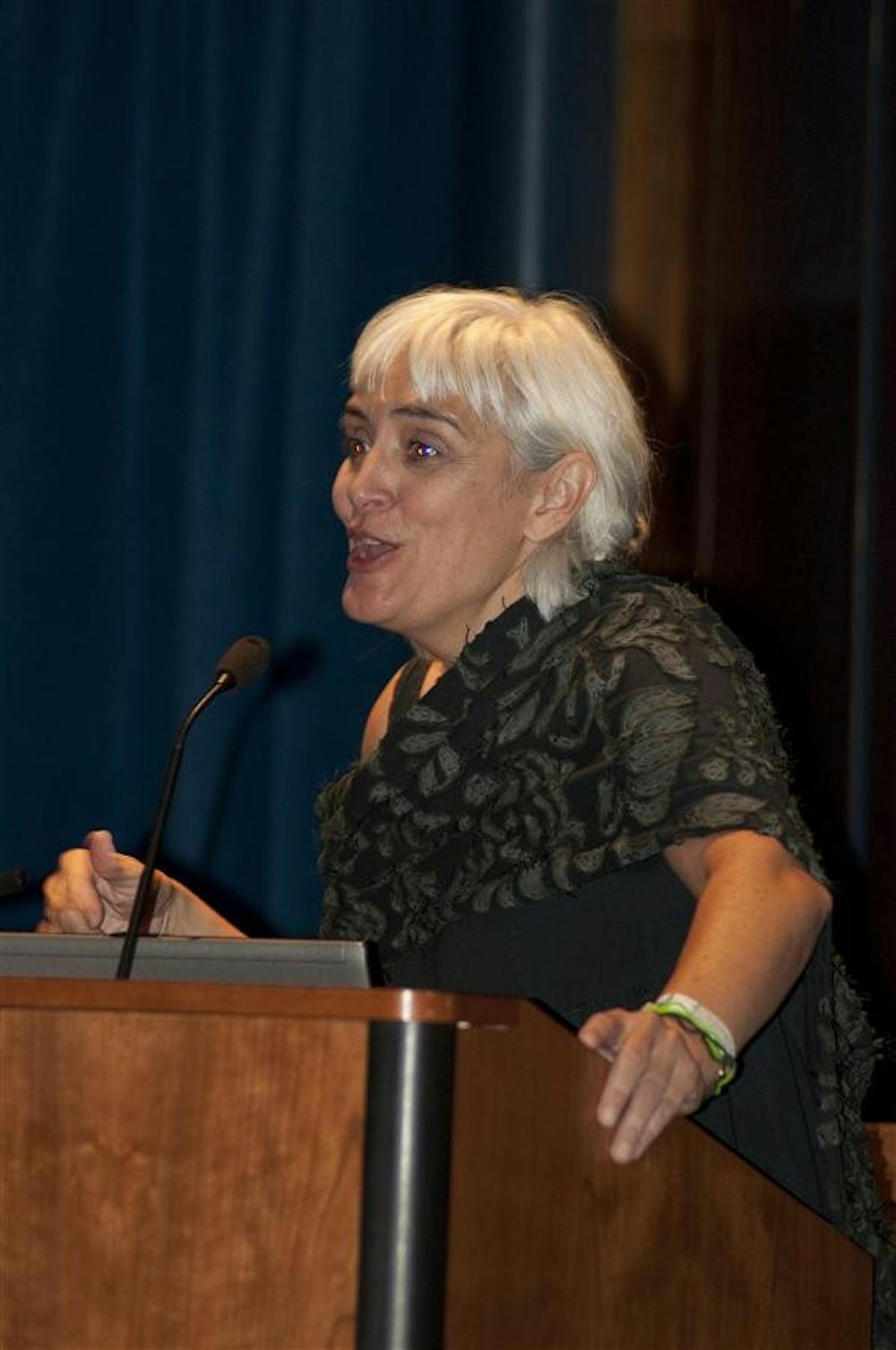The current IU College of Arts and Sciences’ Themester 2010 “sustain•ability: Thriving on a Small Planet” was highlighted with an unlikely partner on Monday — fashion.
Natalie Chanin, creator and designer of the couture line Alabama Chanin, gave a lecture in the Whittenberger Auditorium.
In the lecture, sponsored by the Department of Apparel Merchandising and Interior Design, Chanin spoke of the industry facing issues of fast fashion and fair trade.
Chanin began her fashion career after receiving a degree in environmental design from North Carolina State University. After working in New York and Europe, she said she began to miss making things with her own hands, something she considers to be a
beautiful thing.
Another thing Chanin considers to be beautiful?
Her wholistic company.
Though it is not a term in the dictionary, Chanin has adopted this homemade adjective to describe her company, which uses recycled fabrics and T-shirts in many of its designs. Some people don’t understand that there can be levels of sustainability, Chanin said.
“Recycled materials are good in smaller quantities but become unsustainable in larger quantities,” she said.
Because of this, Alabama Chanin uses organic fabrics for the bulk of its garments and
supplements with recycled T-shirts to the degree Chanin deems sustainable.
Danielle Aden, a freshman apparel merchandising major, said this notion of organic and recycled materials is important and relevant.
Chanin also highlighted the domestic characteristic of Alabama Chanin.
“Products are grown to sewn in America,” she said.
From cotton grown in Texas used in fabric to textile workers and sewers in Chanin’s home state of Alabama, every step of the process takes place domestically. This process can also yield expensive garments, Chanin said.
Chanin said she chose this homegrown, yet expensive process to combat the fact that in the fashion industry consumers just don’t care. Fashion is about 20 years behind the food and shelter industries in terms of sustainability, she said.
When it comes to our clothes, Chanin said she believes consumers vote with their dollars — if they want a cheap dress, they will buy a cheap dress. Cheap clothing is often produced by compromising or taking advantage of those in poverty, Chanin said.
“Producers will keep making cheap clothes until the consumer is willing to question the type of production that goes into a garment,” Chanin said.
Chanin encouraged her audience to use its voice and called it a necessity to get the word out and make a change, a part of the lecture that resonated with Lauran Sanders, a sophomore majoring in apparel merchandising. Despite the fact that she didn’t have a plan, and while America can be so harsh, she took initiative and gained success, Sanders said.
Alabama Chanin has expanded to offer products in addition to couture clothing in recent years. The company has published two books on hand sewing techniques used to create the couture garments, as well as kits to create the garments in each book.
The books highlight sewing practices that Chanin said people don’t know how to use anymore.
Publishing these techniques in a book fulfilled Chanin’s goal of cultural sustainability. She said along with recording oral histories of textiles workers in Alabama, she hopes to preserve parts of her world and work forever.
Chanin closed her lecture with an excerpt from the lives of the women sewing in Alabama. She said that before the women sat down to begin a garment, they would thread their needles and speak to them.
“This thread will make the most beautiful garment ever made. It will bring the person who wears it love and joy, prosperity and beauty,” she said.
Deb Christiansen, professor of fashion design, said she valued Chanin’s refreshing perspective on the rewards and merits of working with her own two hands. She said she hopes to pass Chanin’s message on to students in the future and encourage them to continue with their passion to create.
“Love your thread. It doesn’t get much better than that,” Christiansen said.
Designer brings sustainability to couture

Get stories like this in your inbox
Subscribe





